The connection between mental health and financial stress
Financial Strains and Mental Health: An Unbreakable Link

Understanding the Impact of Financial Stress on Psychological Well-being
Financial stress is a pervasive issue affecting individuals worldwide, strongly intertwined with mental health challenges. From anxiety and depression to physical health symptoms, the psychological toll of financial hardship can be profound. This article explores the scientific evidence, mechanisms, signs, and coping strategies related to the complex relationship between financial stress and mental health, emphasizing the importance of informed interventions and support systems.
The Evidence Connecting Financial Worries and Mental Health
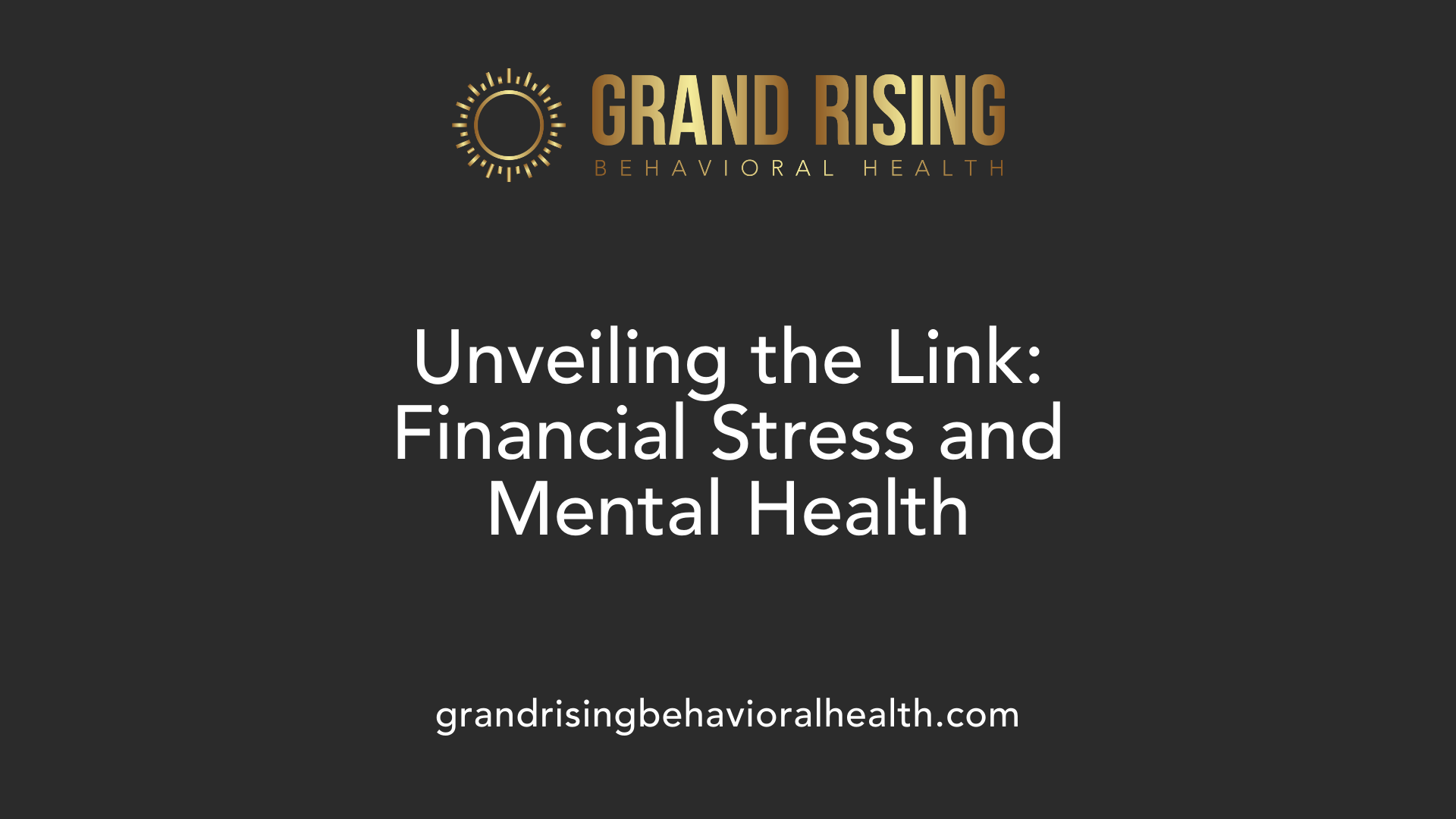
What does scientific research say about the relationship between financial stress and mental health?
Scientific research consistently highlights a significant link between financial worries and mental health issues. Studies indicate that individuals experiencing financial hardship—such as high debt, medical expenses, or housing costs—are more likely to suffer from conditions like depression, anxiety, and psychological distress.
National surveys, including the 2018 National Health Interview Survey (NHIS), have demonstrated that financial worries are associated with increased mental health problems even after adjusting for factors like age, gender, and socio-economic status. For example, people with medical debt are three times more likely to encounter mental health conditions such as anxiety and depression.
The relationship between financial difficulties and mental health is both strong and complex, forming a bidirectional cycle. Financial problems can worsen mental health, and mental health issues—like depression or anxiety—can impede effective financial management. Low-income households and individuals with unsecured debt are especially vulnerable.
Research also emphasizes the importance of perception: viewing income loss as a catastrophic event can significantly increase emotional distress. Conversely, perceiving setbacks as temporary or manageable can mitigate negative effects.
In addition to emotional impacts, financial hardship is linked with broader health issues. Data suggests that financial stress can lead to physical symptoms, including migraines, high blood pressure, and sleep disturbances, which may further increase healthcare utilization.
Overall, the scientific evidence underscores that addressing financial stress not only benefits mental well-being but also has wider health implications. Support systems like financial counseling and mental health services play critical roles in alleviating these interconnected problems.
Mechanisms Linking Financial Difficulties to Mental Health Problems
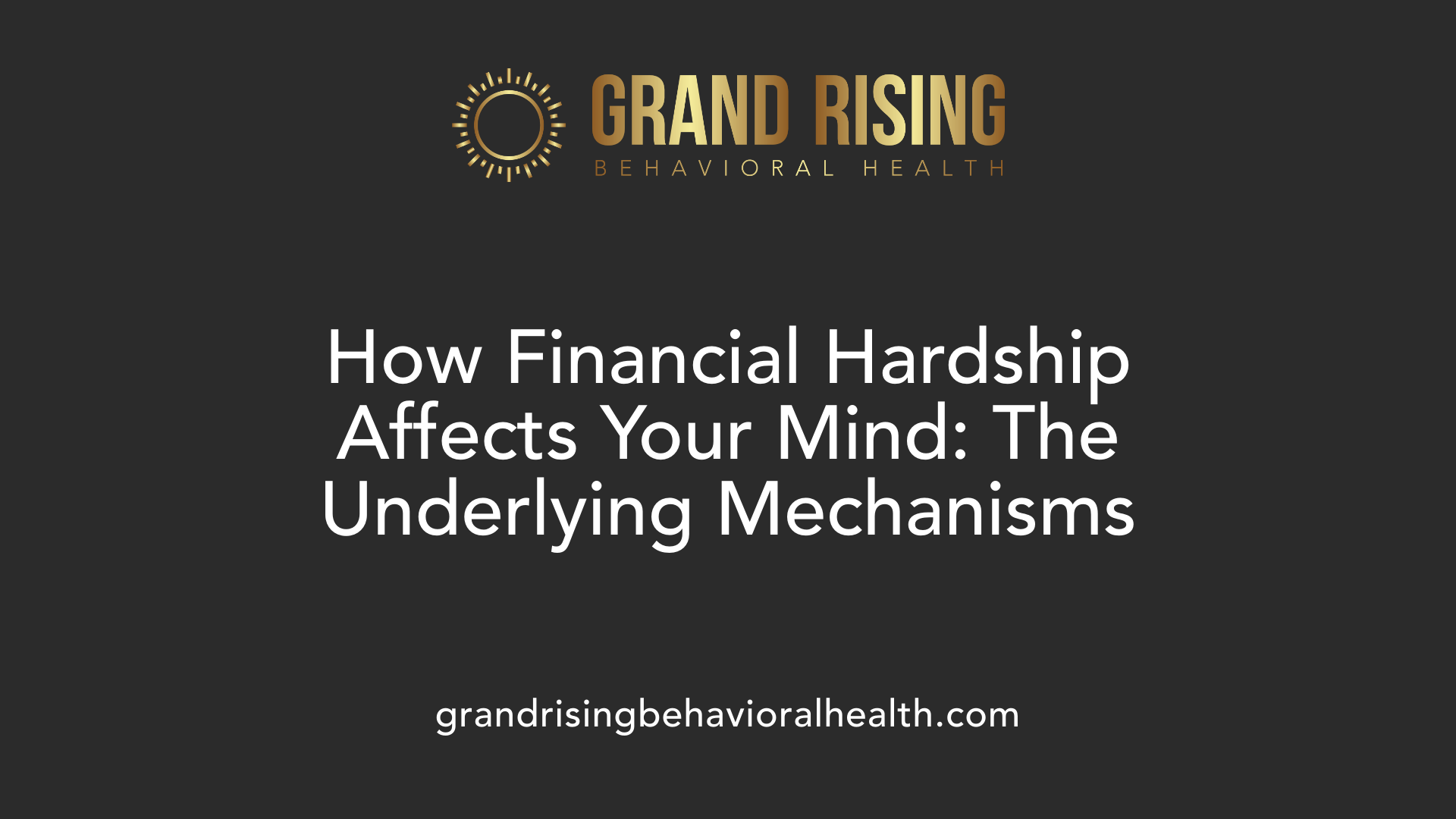
What mechanisms explain how financial difficulties lead to mental health problems?
Financial difficulties contribute to mental health challenges through several interconnected pathways. One primary mechanism is the chronic stress caused by ongoing financial worries. Persistent stress activates the body’s stress response, leading to symptoms such as anxiety, depression, and physical health issues like headaches or high blood pressure.
Beyond physiological effects, financial hardship often erodes psychological resources. Individuals facing financial troubles may experience a decline in self-esteem and sense of control over their lives, which diminishes their capacity to cope effectively. This reduced resilience makes it harder to manage daily stressors and can lead to feelings of helplessness or shame.
Socio-economic factors play a significant role, with those in lower-income brackets, unemployed individuals, and renters experiencing a stronger and more detrimental impact on mental health. These groups often face greater financial instability, compounding the psychological toll.
The relationship between financial difficulties and mental health is not unidirectional. It tends to be cyclical: financial stress worsens mental health conditions like anxiety or depression, which in turn impairs an individual’s ability to manage finances effectively. This can result in further financial hardship, deepening the cycle.
Understanding these mechanisms underscores the importance of addressing both financial and psychological aspects in interventions aimed at reducing mental health issues linked to economic stress.
| Mechanism | Effect | Impact on Mental Health |
|---|---|---|
| Chronic financial stress | Ongoing worry triggers stress response | Anxiety, depression, physical symptoms |
| Erosion of psychological resources | Lower self-esteem and reduced coping skills | Feelings of helplessness and shame |
| Socio-economic moderation | Greater impact among disadvantaged groups | Higher rates of mental health issues |
| Cyclical relationship | Feedback loop between financial stress and health | Worsening mental and financial well-being |
This complex interplay highlights the need for comprehensive strategies that target both economic stability and psychological resilience to break the cycle of financial hardship and mental health deterioration.
Recognizing the Symptoms: How Financial Stress Manifests Psychologically and Physically
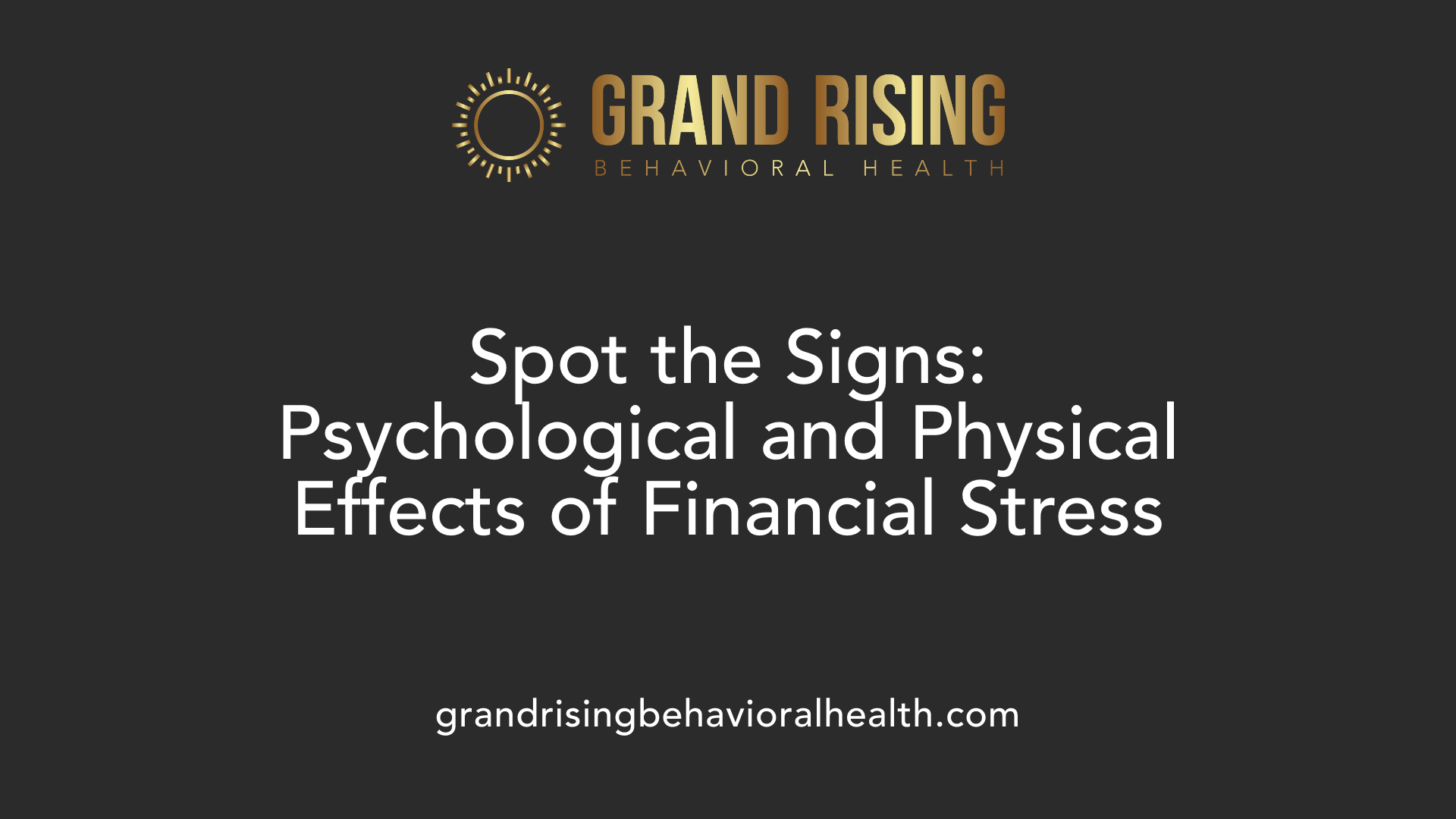
What are common signs that financial stress is affecting mental health?
Financial stress often shows itself through various psychological and emotional signs. Many individuals experience persistent worry and anxiety about their financial situation, feeling overwhelmed or as if they have lost control. Mood swings, irritability, and feelings of depression are frequent responses to ongoing financial pressure.
Emotionally, people might notice increased feelings of guilt, shame, or fear related to their money problems. Social withdrawal is also common, as individuals may avoid discussions about finances or social activities due to embarrassment or stress. Decision-making becomes more challenging, with difficulty concentrating and a tendency to delay or avoid important financial or personal choices.
In some cases, these mental health challenges lead to unhealthy coping mechanisms such as overeating, excessive alcohol consumption, or gambling. Recognizing these early signs can motivate individuals to seek help, whether through counseling, financial advice, or support networks, to reduce the risk of long-term mental health impacts.
The Deep Impact: How Financial Stress Alters Mental and Physical Health Outcomes
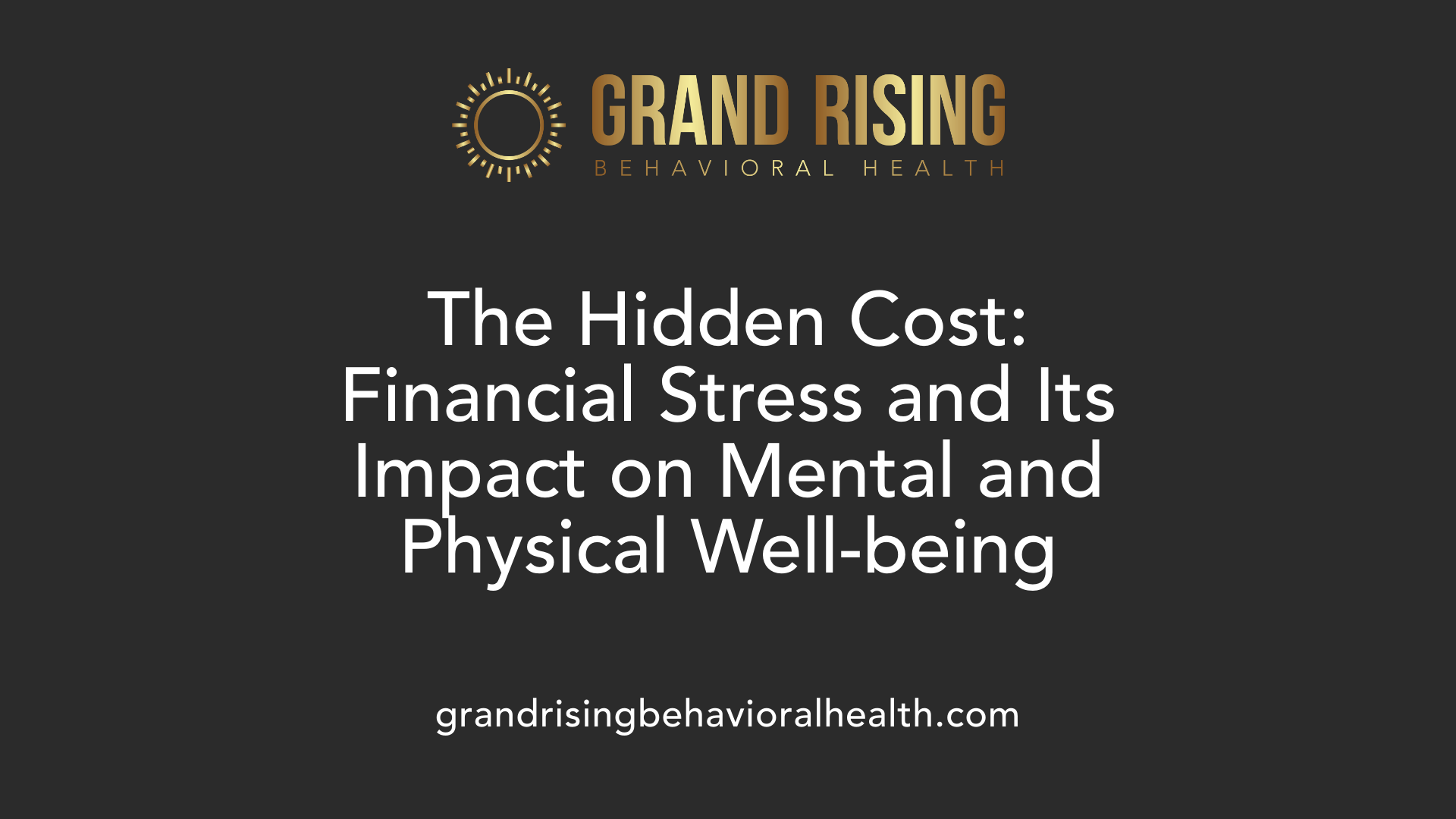
How does financial stress influence mental health outcomes?
Financial stress exerts a significant effect on mental health, elevating the risk of anxiety, depression, and ongoing psychological distress. Research consistently shows that people with high financial worries often experience worse mental health outcomes, with vulnerable groups such as the unemployed, low-income households, and renters being particularly affected.
Persistent financial hardships can foster feelings of hopelessness, low self-esteem, and despair, which contribute to mental health decline. Conversely, mental health challenges can impair a person's ability to manage finances effectively, trapping them in a cycle of worsening financial and emotional difficulties.
The impact extends beyond individual well-being into the workplace and social spheres by decreasing productivity and increasing social withdrawal.
Addressing this cycle requires targeted public health initiatives, access to consistent financial counseling, and supportive services that help individuals navigate their financial and emotional challenges. Such interventions are crucial in reducing the adverse health effects linked to financial distress.
The Vicious Cycle: How Debt and Mental Health Feed Into Each Other
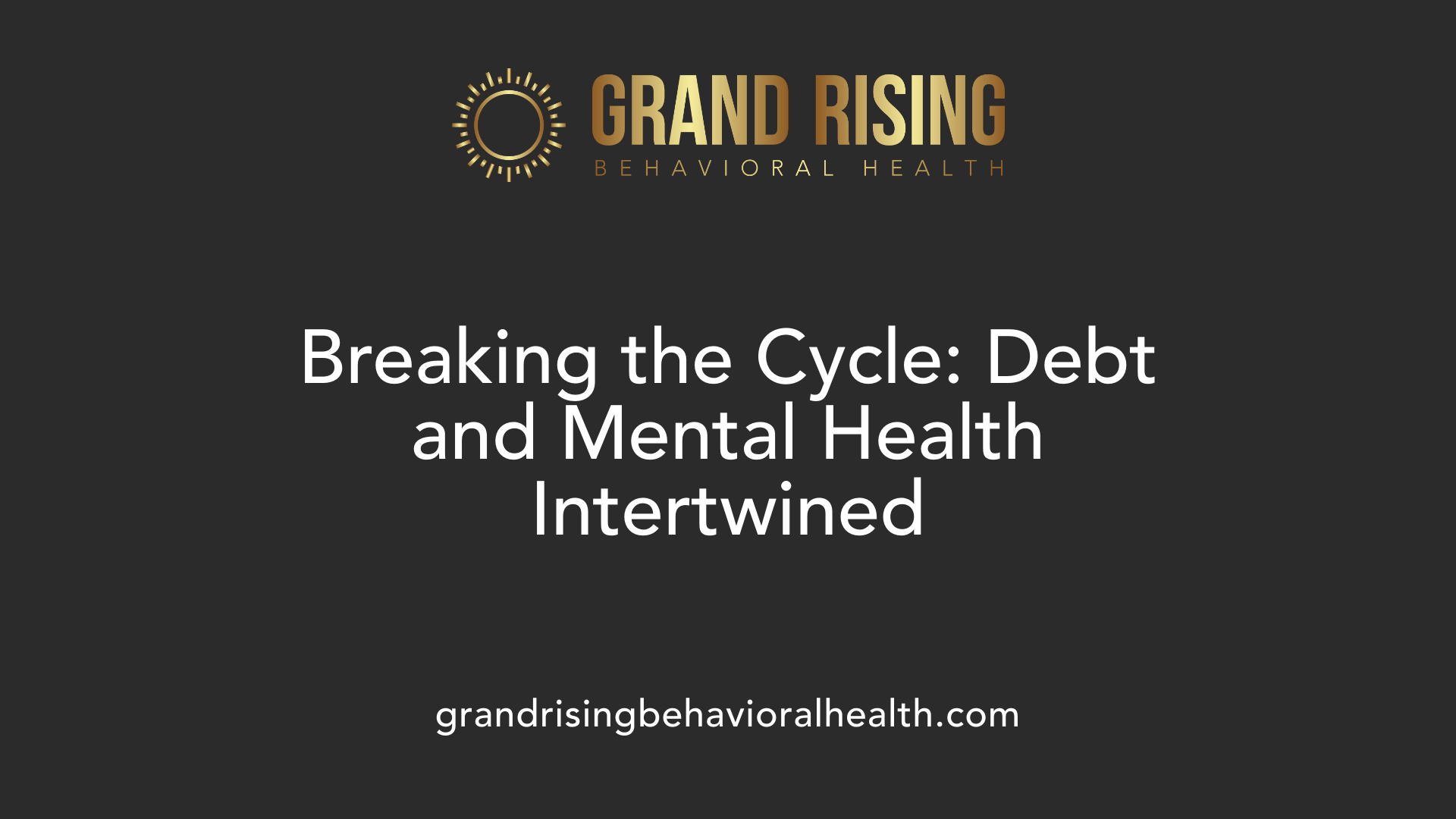
What is the link between financial stress and mental health?
Financial stress and mental health are deeply interconnected. Numerous studies indicate that financial worries—such as mounting debt, job insecurity, or inability to cover basic expenses—contribute to increased psychological distress, including anxiety and depression. Vulnerable groups like the unemployed, low-income households, and renters experience the highest levels of stress, which can impair their mental well-being.
This stress not only affects emotional health but can also diminish financial decision-making capabilities. When mental health deteriorates, managing finances becomes more challenging, leading to further financial hardship. This creates a cycle that feeds itself: financial difficulties cause mental health problems, which in turn make resolving financial issues more difficult.
Research highlights that debt and financial instability are associated with higher risks of depression, feelings of hopelessness, and even suicidal thoughts. Addressing this problem requires accessible financial counseling services and broader public health strategies. These interventions aim to reduce financial stress and help break the cycle between debt and mental health issues, fostering better overall well-being for affected individuals.
This bidirectional relationship underscores the importance of integrated support systems that consider both financial and psychological health to improve outcomes across populations.
Physical Health Consequences of Financial and Mental Stress
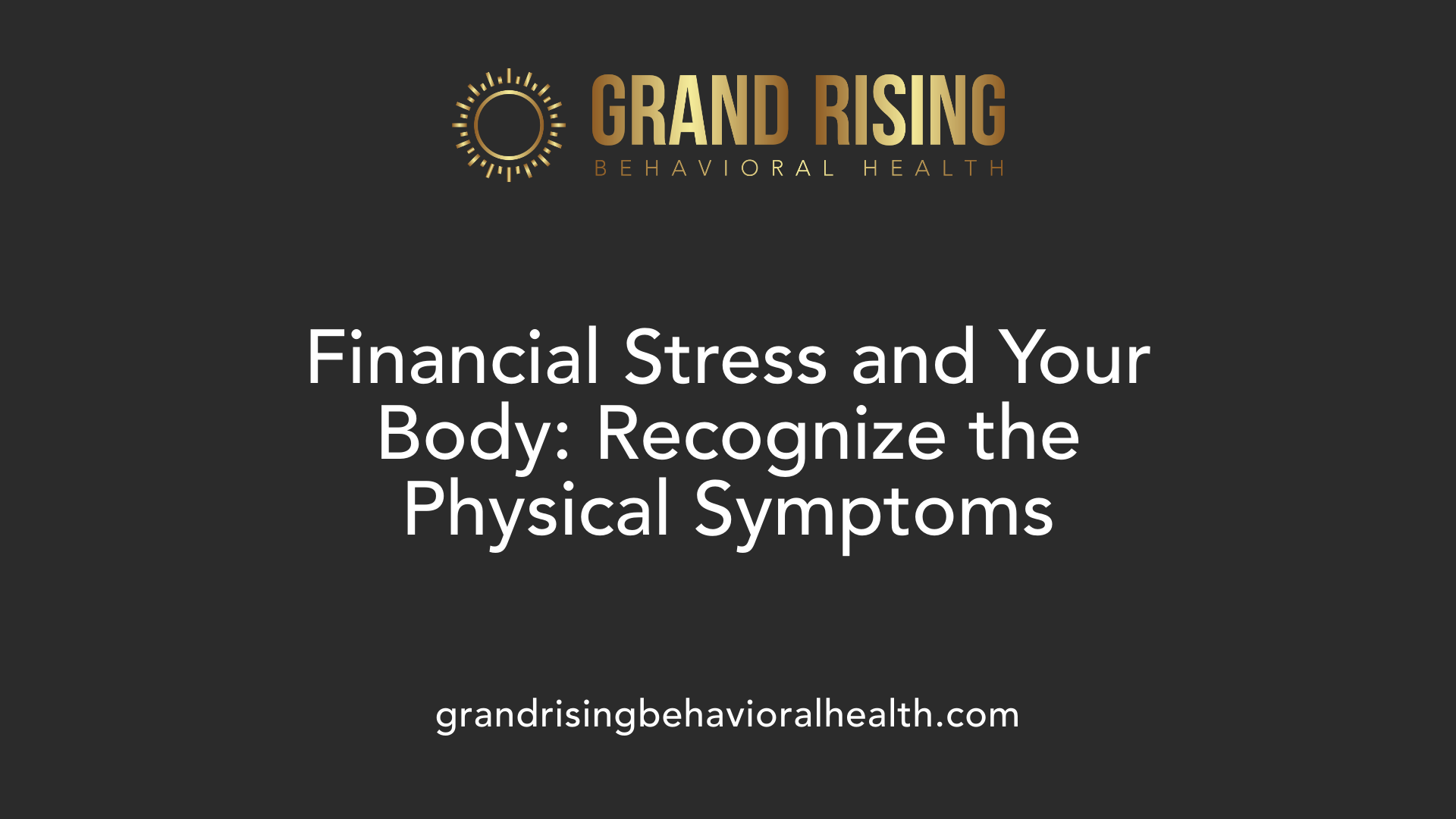
What signs and symptoms indicate that financial stress may be affecting physical health?
Financial stress can have a direct impact on physical well-being. Common symptoms include headaches, migraines, and muscle tension, which are often triggered by chronic anxiety and worry about finances.
Other physical signs include fatigue, elevated heart rate, upset stomach, and gastrointestinal problems. Sleep disturbances are also prevalent among those experiencing high financial stress, leading to a cycle of exhaustion and increased vulnerability.
Prolonged stress related to financial hardship doesn’t just cause immediate discomfort; it can weaken the immune system, making individuals more susceptible to illnesses. Persistent high blood pressure and heart arrhythmias are serious concerns linked to ongoing financial and mental stress.
In addition to cardiovascular issues, individuals might notice changes in weight—either gain or loss—as a consequence of cortisol-related metabolic changes.
The longer financial stress persists, the higher the risk of developing severe health problems such as depression, which can further complicate physical health. Recognizing these physical symptoms early can encourage individuals to seek appropriate medical care and adopt stress management techniques.
Managing stress effectively, through practices like exercise, mindfulness, and seeking support, is crucial to prevent these physical health issues from worsening and to maintain overall well-being.
Breaking the Cycle: Strategies for Mitigating Financial Stress and Supporting Mental Health
Addressing the twin challenges of financial stress and mental health requires a comprehensive approach. Public health initiatives, accessible financial counseling, and mental health services are essential for alleviating individual stress and preventing long-term health impacts. Educating individuals on financial literacy, promoting healthy coping mechanisms, and fostering social support networks can empower people to better manage their financial situations and emotional well-being. Workplaces can play a significant role by offering supportive programs and resources, while policymakers should consider interventions that improve financial stability at a community and national level. Ultimately, recognizing the deep connection between financial health and mental health is crucial for building resilient communities and improving overall well-being.
References
- The Relationship Between Financial Worries and Psychological ...
- Understanding the Mental-Financial Health Connection
- Money and mental health facts and statistics
- Relationship between financial mental health
- The link between money and mental health - Mind
- Mental well-being inherently connected to financial wellness
- Coping with Financial Stress - HelpGuide.org
- How Financial Stress Affects Young Adult Mental Health | PrairieCare
More Resources
A team ready to start your journey.
Get in touch — today.
We are a safe space – a haven for exceptional individuals to receive discreet, personalized, in-person treatment and care.
.avif)










